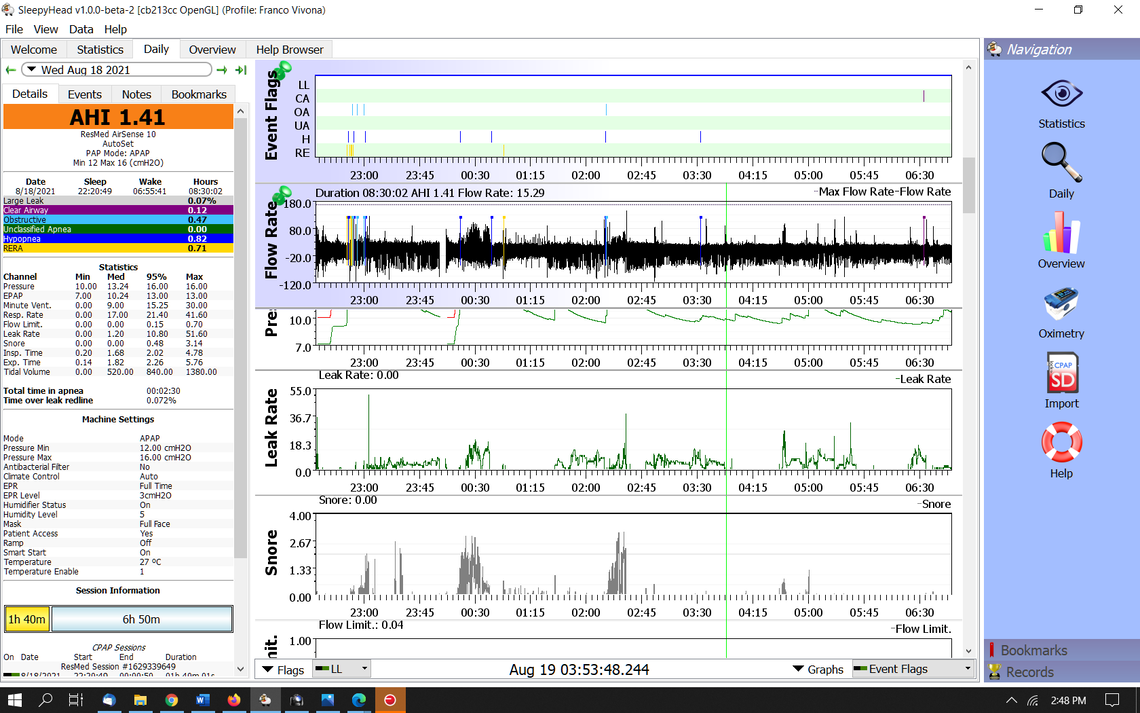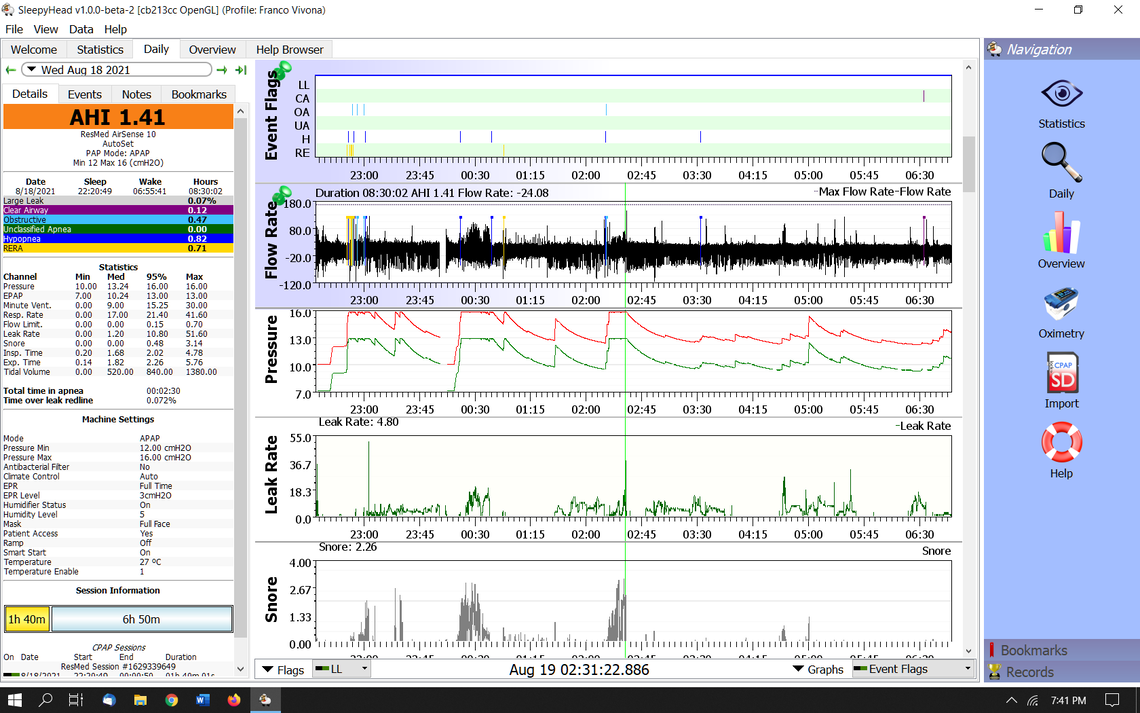Hi I am curious about the Snore pattern. Over a month , the score of my snore events in Oscar is between 0.00 and 0.50 in the 95% column. On the surface, it looks O.K., except that if I look at the Snore MAX values column, the readings go repeatedly up to 3 or even 4 during a given night and I noticed that the higher the snore MAX values, also the higher is the number of AHI’s, chiefly OA’s and H. .
I don’t know if snoring can trigger AHI’s or if the reverse is true, but I wonder if a bad snoring score, when it occurs, can itself account for poor quality sleep ( interruptions? wakeups?), because lately I wake up more sluggish than in the past, no doubt also on account of the nasty heat wave that has hit us hard here , but may be there is something else .
I am also thinking of increasing the mask pressure from 12-16 cmH2O, to 13-16. May be this will further clear up my airway, possibly decreasing the hypoapneas, which still frequently occur and which may still affect the quality of sleep, although not as much as OA’s.
I am attaching last night report concerning the Snore events.
Incidentally, after speaking to the clinic, I found that the large leaks problem I had previously reported, was due to a bad adjustment of the mask. I raised it a bit higher on the face by tightening the upper straps and the large leaks have now disappeared.
Thanks as usual
Ittiandro

My snore is no where near as high as yours. Snore, obstructive apnea, and hypopnea in most cases are caused by the same thing; the airway not staying open. About the only solution is more pressure to keep the airway open. Perhaps if you post again with both the snore and pressure graphs showing I could comment better. My expectation is that the snore may be occurring when the pressure is being limited by the maximum pressure setting. If that is the case then it will not be fixed by increasing the minimum pressure. The maximum pressure will have to be increased. But, I am just guessing because I can't see the pressure graph to see what the relationship is to the snoring.
Thanks
I thought, too that the snoring could perhaps be caused by insufficient inhaling pressure in the mask and I slightly increased it from 16 to 16.5. I'll see if it decreases snoring and the hypoapneas. If not, I'll adjust it a little more, by small increments.
I didn't think it necessary to increase the exhaling pressure ( 12cmH2O, the lower value) because it might make exhaling harder.
Here are the pressure and the snore graphs.
Thanks for your comments
Ittiandro

Yes, there is a definite correlation between when the snoring occurs and when the pressure is at maximum. The only way to reduce it is to increase the maximum pressure. I would only increase it by small amounts so you can get used to it.
Just to be clear the minimum pressure is not the exhale pressure. It is the minimum inhale pressure that the machine can go to. The exhale pressure is set by the EPR. They way you have it set the exhale is always 3 cm below the inhale. Inhale is the red trace. Exhale is the green trace. You will notice that when you max out at 16 cm inhale the exhale is 3 cm below that at 13 cm. If you increase the max pressure to say 16.6 cm then when the machine is at max, your exhale will be 13.6 cm.